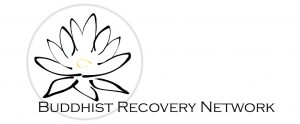By Kobai Scott Whitney –
When people say they’re into Buddhist practice, they usually mean that they’re meditating, or trying to. But that’s not what I mean when I ask how someone’s practice is going. The Euro-American emphasis on meditation (bhavanā) above the other two elements of practice‚ ethical conduct (sila) and generosity (dāna)‚ has given our western Buddhism its distinctive, and flawed, character. Buddhism is much more than sitting still and trying not to be distracted.
Many lay Buddhists throughout South and Southeast Asia recite the classic five precepts every day, along with the three refuges. Even devout lay people in these countries hardly meditate at all, but they are very aware of the teachings on ethical conduct and generosity. Over a lifetime, many of these dedicated Buddhists gradually become more ethical and more generous, to such a point that they can navigate through life’s ups and downs in what seems a serenely effortless manner. They are not lusting after enlightenment like their Euro-American contemporaries. Enlightenment is something that might happen to them in a future life; in this life it’s the province of the nuns and the monks‚ and perhaps they will be lucky enough to become a monk or nun in the next lifetime.
Buddhism is much more than sitting still and trying not to be distracted.
Meanwhile, they are always working on the karma‚ on the cause-and-effect of their thought, speech and action. Anyone who has spent time in Cambodia, Burma/Myanmar or Thailand will have experienced the friendliness, helpfulness and generosity of the people in these cultures. Buddhist practice is supposed to make us happy and some of the monks, nuns and lay people of these countries are living proof that the practice works.
We all have excuses for not meditating, and I participate in this folly of rationalizing along with everyone else. But even when I’m traveling, which is when I’m most likely to be out of sync and most likely to skip meditation; I always recite the three refuges and the precepts. Every day, without exception, I do this‚ and I recommend the practice to everyone who tells me they don’t have time to meditate.
When talking to prison sanghas I recommend what I call portable practice, which means memorizing the refuges and precepts, and any other element of liturgy one cares to do on a daily basis. When you memorize something, it can not be taken away from you. You don’t need a sutra book or a special pillow or incense. As Allah told Muhammad, “Recite!” Any time, any place, you can do your practice.
The Three Refuges, in Pāli and English are:
- Buddham saranam gacchami.
- I take refuge in the Buddha.
- Dhammam saranam gacchami.
- I take refuge in the Teaching.
- Sangham saranam gacchami.
- I take refuge in the community.
And here is my rendering of the five ascetical trainings:
- I take up the practice of not harming living beings.
- I will not take what is not offered.
- I will not misuse the senses.
- I will practice gentle, truthful speech.
- I will not deal in or misuse intoxicants which lead to negligence.
These five are the original, core precepts which existed even before the time of the historical Buddha. Later, as the Mahayana developed, and as the craze for the decimal system swept the Indian sub-continent, five more precepts were added, which are known in the Zen tradition as The Ten Grave Precepts.
- I take up the practice of not gossiping or slandering others.
- I will not promote myself at the expense of others.
- I will not dwell in anger.
- I will not ignore the pleas of those in need.
- I will not dishonor the Buddha, the Teaching or the Community.
There is also a Theravadin eight-vow sequence which is recited by lay people on retreat or on special holidays or family milestones. The three additional vows prohibit eating after mid-day, reclining on high beds, decorating the body or engaging in entertainments like music or dance. Ajahn Sumedho, explaining these three at the beginning of a retreat, summed them up: “This means we’re not to have any fun!” He then cackled gleefully.
Whatever the number, precepts are meant to guide us in how to act. The fruits of our practice might be seen during meditation, but they are more likely to show themselves in the thoughts, words and actions of our daily lives. Ajahn Chandako, an American ordained in Ajahn Chah’s Theravadin forest tradition, says, “An essential foundation for meditation is to maintain a high level of virtue, living in a compassionate and responsible way toward ourselves and others by upholding the basic five Buddhist precepts.” (From, A Honed and Heavy Ax, Vibulkij Publications: 2004, p.41)
Virtue is not my favorite word, perhaps because it comes too easily to the lips of those who know it not. Its original Latin meaning is “skilled” or “manly” as in our contemporary word virile. This is the White Knight version of good behavior‚ all macho chest beating and galloping horses. Yet there is also in Buddhism an idea of bravery or fearlessness attached to the pursuit of the ethical life. It is developed through devotion to the female embodiment of compassion, who goes by many names, Kuan Yin, Chenrezig, Tara and Kannon, to cite just a few.
Whether feminine or masculine, it is still deeply true that ethical behavior brings us peace of mind, which is the mental and emotional environment we need to do shamata, the calming, clearing aspect of meditation. Vipassanā, or the insight aspect of meditation, is not possible without the foundation of calm and the peacefulness of heart, body and mind that shamata provides. The precepts, then, are the pillow on which we sit to support our meditation.
In addition to the “refraining,” thou-shalt-not emphasis of the precepts, there is also the more positive goal of dāna, or generosity‚ which means we govern our active decisions on the principles of compassion and generosity. As we engage in the speech and behavior of each day, our question should always be: What is the most generous response I could make in this situation?
We engage in lives that are very time pressed and filled with tasks to be completed. We North Americans delight in nothing more than ending our day with a to-do list that has many crossed-off tasks and errands. It’s deeply satisfying to us. Or perhaps, more accurately, it is a shallow satisfaction that is nevertheless well-rewarded by our society. Busy-ness is our mantra. Even among Buddhist sanghas I hear people literally bragging to each other, time and time again, about how busy they are. Does this have to be so?
Ajahn Chandako again: “If enlightenment is what we’re interested in, we’re going to have to slow down and simplify. Rather than trying to change the Buddha’s teaching to fit our lifestyle, we should try to change our lifestyle to fit the Buddha’s teaching.” (p.49)
As we improve our ethical behavior, we need to look at the other actions in our lives: our mindless consumption of goods and services. Our circular economic mind set which says we must work to service our mortgage and put the kids through college and we must commute an hour a day burning carbon non-renewables to earn the money to make the car payment and the mortgage and etc. etc. Our practice implies that we must examine this loopy loop.
The Buddha said there is one taste to all of the Dharma. It is the taste of freedom.
With the precepts in place we give ourselves a unique form of freedom in which there are no choices at all. Bhante Gunaratana says that, “Ethical action shifts our focus from what we personally want to what will most benefit us and others.” (Eight Mindful Steps to Happiness, Boston: Wisdom Publications, 2001, p.113.) This is how we gain our liberation.
In one Buddhist tradition people recite the Four Bodhisattva Vows. The first one says: “Beings are numberless; I vow to save them all.” For years I puzzled over this preposterous, grandiose vow until one day I realized‚ Oh, yes, I’ll save them from me! By keeping the precepts I can save others from my own cravings, hatreds and muddled ideas. That’s the least I can do. That’s the least any real Buddhist can do.
Rev. August 2012


